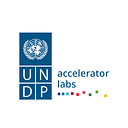Four shades of blue in the Caribbean
By Tamaisha Eytle, Program Officer and Miguel Guirao, Eastern Caribbean Support Officer
As you may have read in our last blog, for the emerging blue economy, the regional synergies with national private sector, public sector and development spaces are clear. So what are we doing to support this ecosystem? For the last four months we have been activating our contacts across the region to find the innovators, the changemakers and the idea-generators to get a better understanding of the growing blue landscape.
As part of this ecosystem mapping we explored the trends and projects that innovators have developed, as well as other efforts around climate mitigation, adaptation, building resilience and creating climate solutions. To help with our sense-making initiatives, we also established the Blue Advisory Board made up of several partners from the development and the private sector. Each were asked a few basic questions:
- What are you doing that’s blue?
- What have you done that’s blue?
- What should we not do that’s blue?
- What should we do that’s blue?
This input and dialogue provided a new stream of information and helped us garner and quickly identify a strategic direction for the Blue Lab. We also conducted a “Blue Tour” across the sub-region, engaging with both governments and the general public to gather more collective intelligence on the blue economy and learn from differing perspectives and local ideas. We also hosted a Blue Talk with the University of the West Indies (UWI), which brought together leading innovators to discuss strategies to better support small island developing states in integrating the sustainable development efforts for their ocean-based economic sectors. Additionally, we created the Blue Green Summit which brought together young activists and other local leaders to speak on the issues in the blue economy and to further harness the collective intelligence in the space.
Our four exploration areas
In addition to our continuous community engagement, the Blue Lab believes in moving from engagement to action as a key pillar of the lab process. We have identified through our partner discussions some key areas of experimentation that are designed to tackle many key challenges and underlying issues that are current in the blue economy arena. At this stage, the below diagram indicates our first four areas of exploration.
As part of our new approach, the top line indicates the overarching sectors for further exploration and below are the ideas or concepts that we are looking to test in making the region more Blue!
For example:
Tourism: We are developing a blue economy badge based on compliance to environmental attainment by piloting the Responsible Tourism Edition of the Oceanic Standards by Oceanic Global. This effort will help us to assess and determine whether sustainable tourism practices help to boost local tourism.
Sargassum seaweed: With the increase in sargassum influx to the region over the last 5 years, governments and citizens are exploring ways to manage the increased volumes and find solutions to its potentially damaging effect on coastal ecosystems. In response, with the advent of the single-use plastic ban in Barbados and several other Caribbean countries, the Blue Lab will be working with Oasis Laboratory to pilot a biodegradable alternative to single-use plastic that is made out of sargassum. There are also efforts underway to explore alternative fertilizer solutions made from seaweed.
Looking ahead, we can’t give away all our blue brainstorm ideas just yet, but here at the Blue Lab we aim to ensure we support the development of both policy and practice for problem-solving. To this end we will also enter a partnership with the University of the West Indies focusing on “Blue Economists,” an endeavor to marry research and policy and underpin our ongoing regional efforts.
The future looks bright blue, and we invite you to join us as we ride our blue wave. Stay tuned to the blogosphere to find out more about these grassroots solutions and other problem solving activities our labs continue to develop to accelerate blue economy development in the region.
***
Tamaisha Eytle is Global Environment Facility’s Small Grants Programme Sub-Regional Associate Officer at UNDP Barbados and the OECS. You can follow her on Twitter.
Miguel Guirao is Resilience and Innovation Specialist at UNDP Barbados and the OECS. You can follow him on Twitter.
